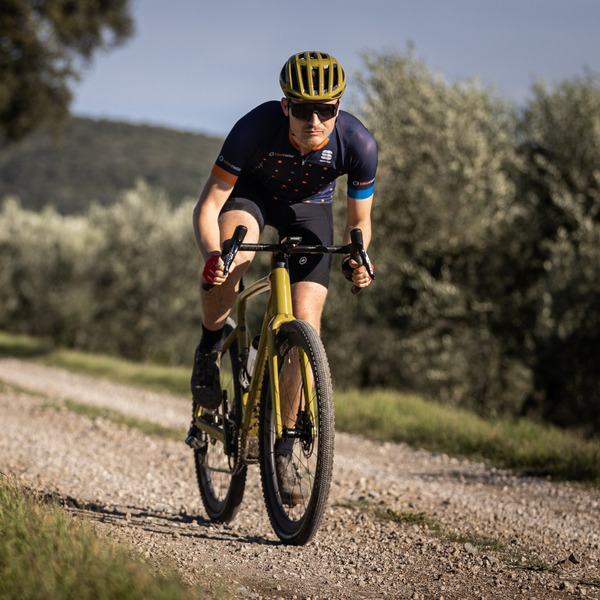What’s old is new again. Tanwall tyres have increased in popularity over the last five years or so, with seemingly every brand having a tanwall option to sit alongside the ubiquitous black rubber.
While not a new innovation, tanwall tyres have made a recent resurgence for a number of aesthetic and purported tech reasons.
It’s common to see riders fawning over tanwall tyres. But I’m going to stick my head above the parapet – tanwall tyres are overrated, and here’s why.
Tanwall tyres – a brief history
The first pneumatic bicycle tyres, introduced by John Lloyd Dunlop in 1888, had tan sidewalls because they used cotton casings.
The tyre’s tread was simply glued to the top of the casing, allowing the tan cotton sidewalls to be exposed.
Fast-forward to 2023, and tyre manufacturers are essentially looking to emulate this aesthetic with modern production methods.
While there are different types and shades of ‘tan’ casings available now, from bright cotton to darker nylons, I’ll use ‘tanwall’ in this article as an umbrella term to describe non-black tyres.
Beauty is in the eye of the beholder
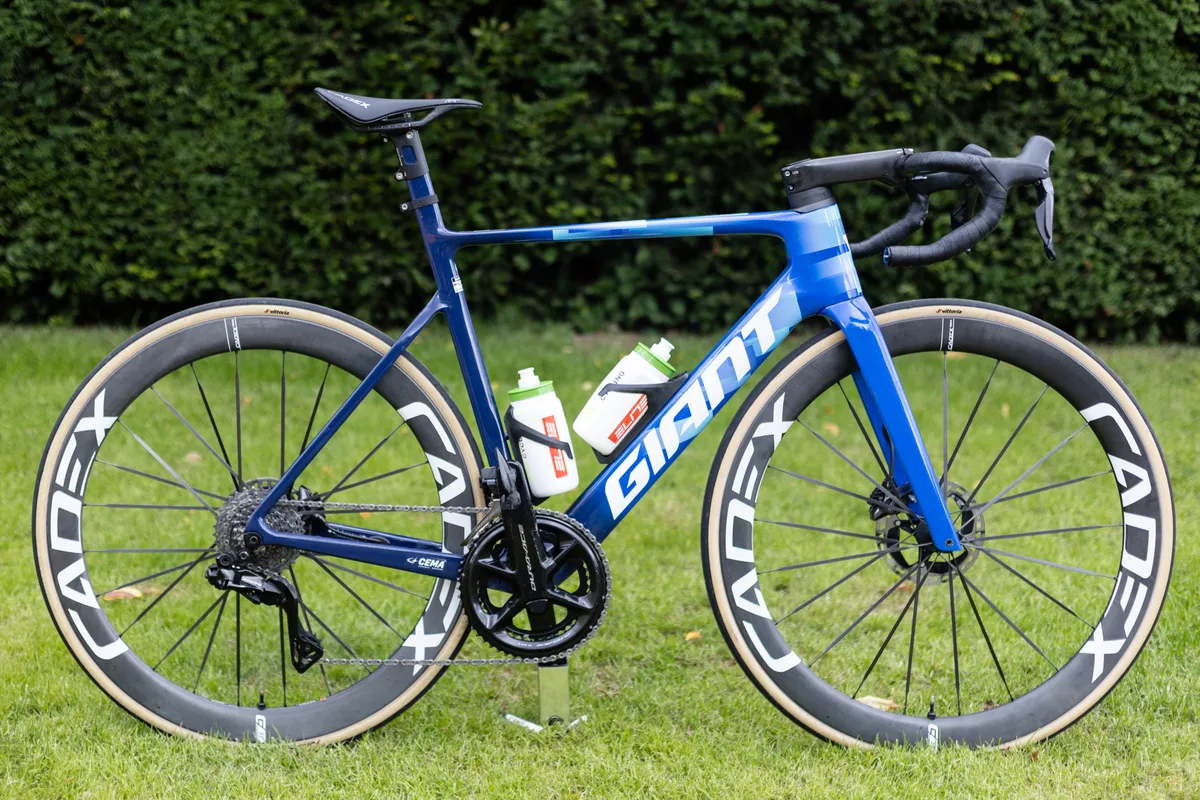
For a lot of riders, tanwall tyres are the cherry on the cake if you’ve got an otherwise murdered-out black bike, providing contrast to the monotone. On busier paint schemes, I’ve even heard someone say tanwall tyres add ‘another visual layer’.
Others see tanwall tyres as an opportunity to give their bike a nostalgic throwback to cycling’s bygone heyday.
The aesthetic appeal of tanwall tyres doesn’t cut it for me, though, and they’re best left in the past.
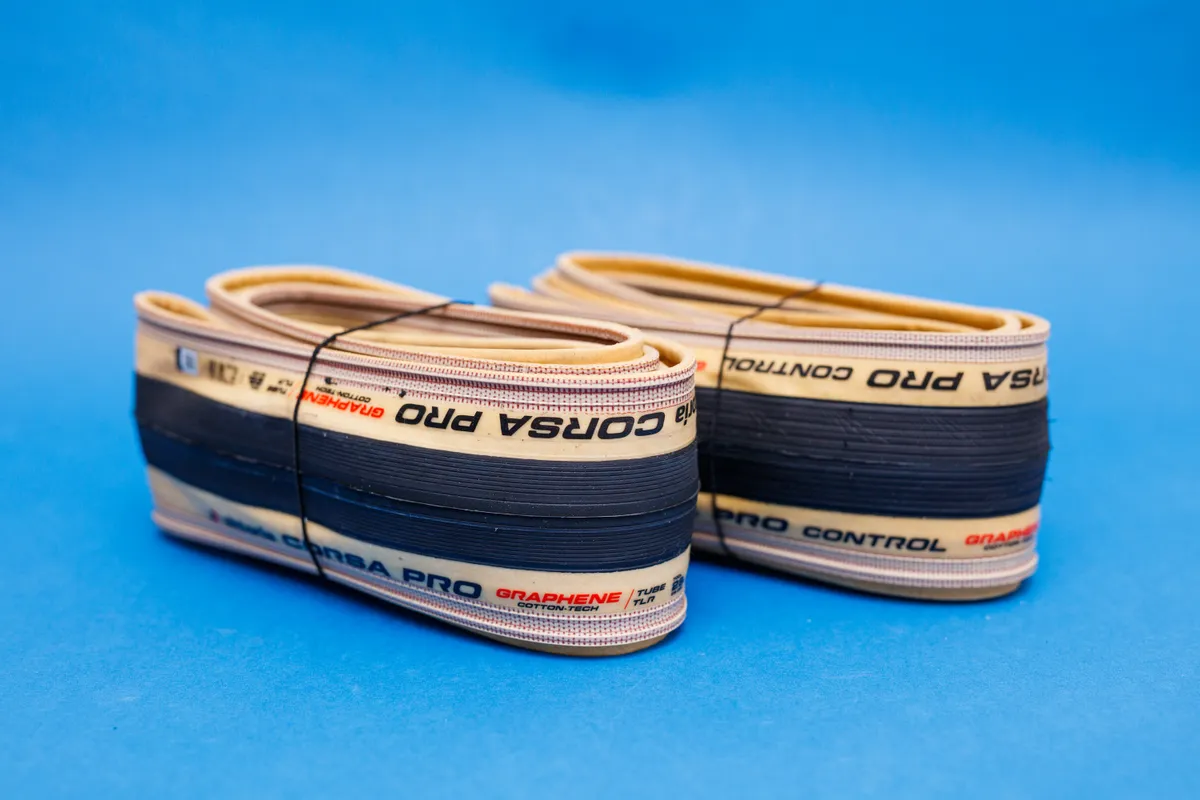
First, there’s nothing to match them to.
Unlike saddles and handlebar tape, where the colours are best paired together (although I think they should also be black because anything other than black bar tape looks filthy after a couple of rides), tanwall tyres stick out like a sore thumb.
With an already busy paint scheme, tanwalls just look tacky, another colour clash where your eye doesn’t know what it should be drawn to.
On the flipside, while all black bikes are often dull and tanwall tyres may be an option to make a sombre-looking machine ‘pop’, that will only last until the first ride, when they typically get irreversibly dirty (especially if your bike has rim brakes).
And don’t get me started on coloured tyres, which are another abomination and have no place in cycling.
Why tanwall tyres don’t complement modern bikes
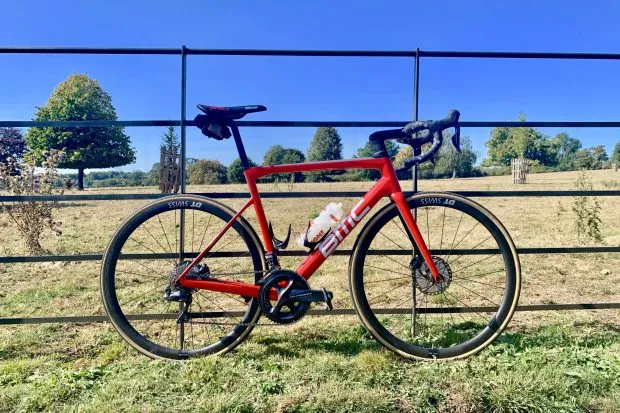
Let’s take a look at a couple of examples – my BMC Teammachine SLR01 Disc and Simon von Bromley’s Giant TCR Advanced Pro 2 Disc.
My BMC originally came equipped with tanwall Vittoria Corsa clincher tyres. The Team Red paint scheme (the only colour a BMC should be) is vivid and rich. BMC wisely opts for black-coloured components to highlight the stunning frame at its centre.
Rather than accentuate the bike, the stock tanwall tyres instead distract from the striking red frameset.
The BMC Teammachine is a modern frameset, created with contemporary design principles and cutting-edge materials.
A superfluous nod to cycling’s technological past with some old-fashioned tyres doesn’t suit it.
Naturally, they were swiftly swapped to black Continental GP5000 tyres and balance was restored.
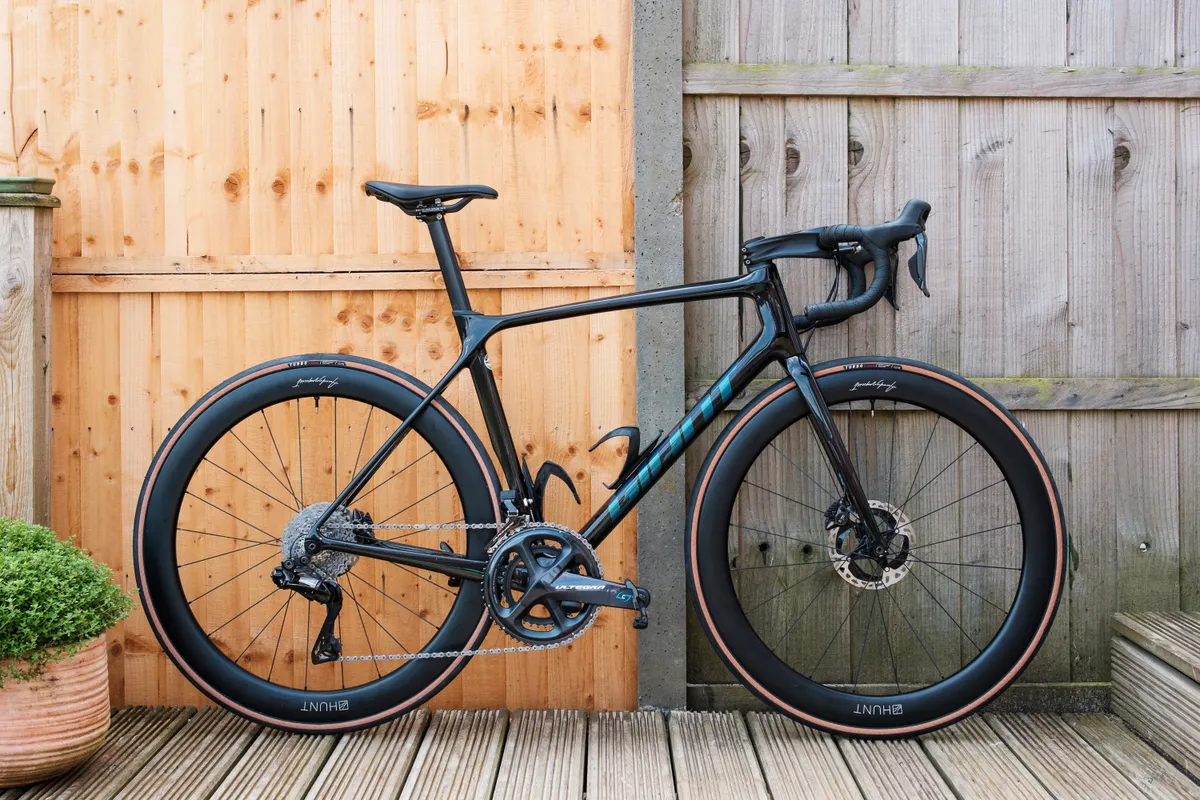
Simon’s Giant TCR provides a different flavour from my BMC with its more organic lines and ‘Gloss Carbon Smoke / Chrysocolla’ colourway. It’s gloss black, with graphics that switch between green and blue depending on how you look at them.
But rather than having my eyes drawn to the elegant Chrysocolla logos, they are drawn instead to those pesky tanwall Specialized S-Works Turbo 2BR tyres.
Simon may disagree, but I think his bike would look infinitely better with some black tyres, which would unite the deep carbon rims with the frameset far better.
They always look dirty
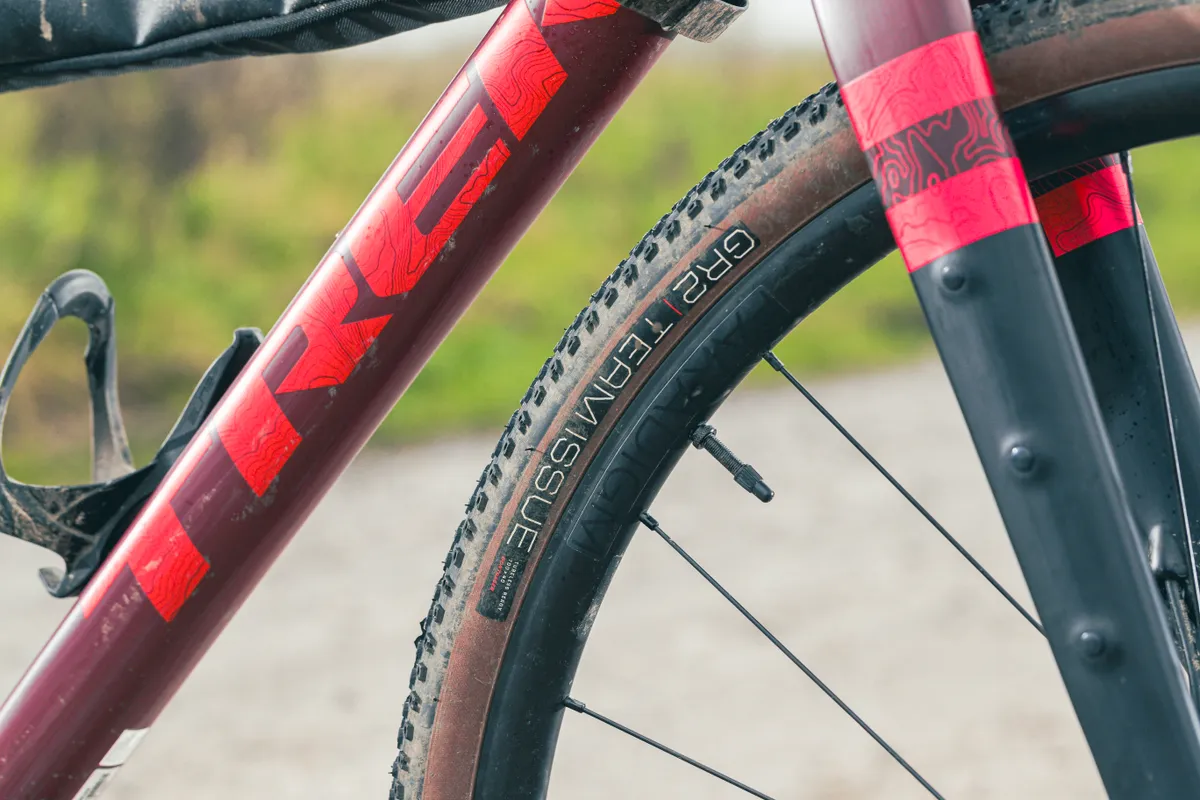
If you live anywhere like me, there’s no getting around the fact that tanwall tyres get irreversibly dirty the minute they’re used. These are tyres for a showroom, not filthy UK lanes.
As soon as they see the first sight of rain, road muck or dirt (or even fingers from when you’re fitting them), the look is ruined, no matter how thoroughly you clean them post-ride.
This is especially true if your bike has rim brakes, because all the dirt from the brake track will get transferred to your tyres. However, even disc-brake equipped bikes aren’t immune to this horror.
At least with white bar tape, you can wrap cellophane over it to attempt to preserve its finish when the bike isn’t in use (as a workshop I previously worked at would do).
And why should riders bother spending the time cleaning their tyres after a ride to try to rejuvenate their appearance? That’s just extra work, on top of cleaning your bike and drivetrain for a result you’re not going to get anyway – the tanwall is still going to be stained.
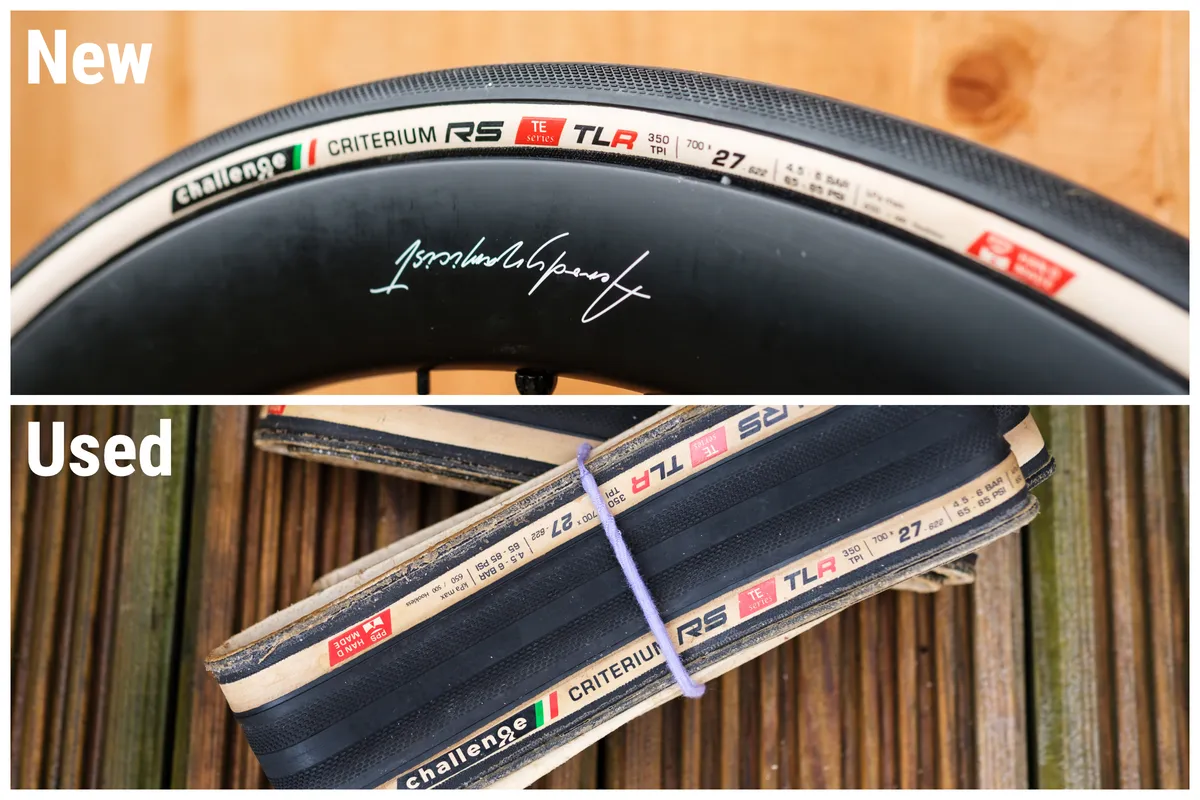
In fact, senior technical writer Simon von Bromley recently reviewed the Challenge Criterium RS as part of a fast-tyre group test. Two months into testing and their brilliant white sidewalls have already faded, possibly in this instance, due to light exposure as opposed to mileage.
Ultimately, life’s too short to spend it cleaning tyre sidewalls – it’s already enough hassle cleaning your bike and drivetrain. Even as a committed mechanic and self-confessed tool nerd, I could do with fewer, rather than more maintenance jobs.
Tanwall by name, not tanwall by nature
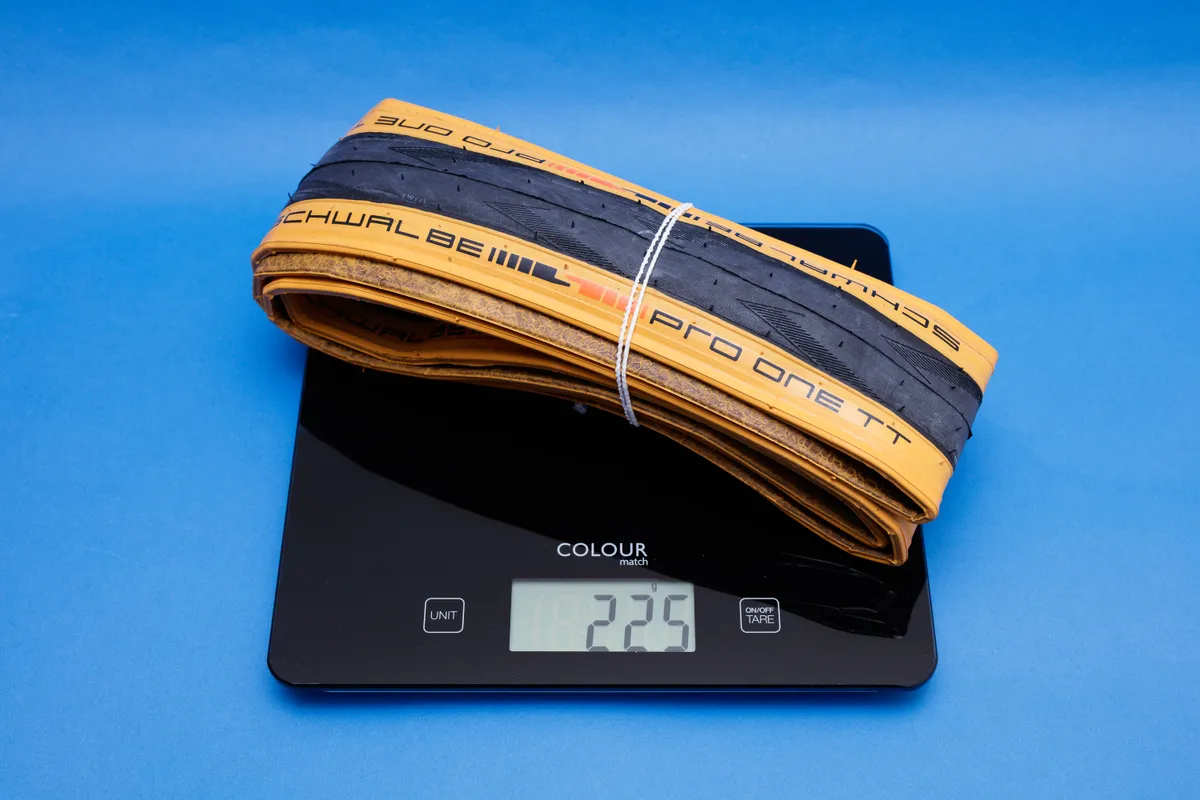
As cotton tyres have become less ubiquitous, many tanwall tyres now on the market are essentially black tyres with a cosmetic layer.
Take the Schwalbe Pro One TT, for example. It's an excellent tyre by all accounts, but the ‘tan’ sidewalls are simply painted onto its nylon casing.
This just seems superfluous – for a performance-focused tyre such as this, why would anyone want a brand to add any extra material that could potentially increase weight and impact rolling resistance (if it makes the tyre sidewalls stiffer as a result)?
Of course, there have been some other tanwall nylon tyres launched in recent years – such as the Continental GP5000 S TR, Pirelli P Zero Race TLR and Specialized S-Works Turbo 2BR mentioned above – which are available with biscuity-brown sidewalls rather than black.
This doesn’t replicate the bright effect of traditional tanwall tyres, though, because the colour is far duller.
And since they look so dull, you might as well have black tyres and not deal with the associated hassle of needing to keep them fastidiously clean.
They may be slower
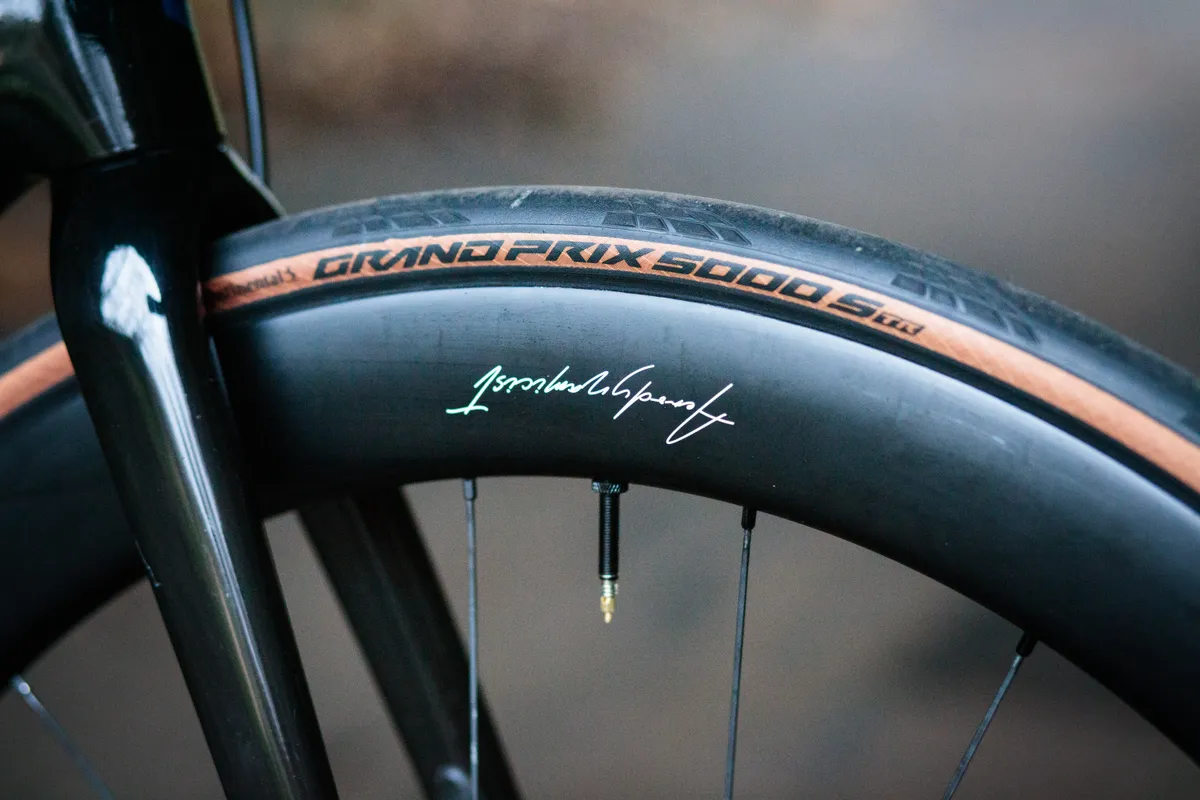
Although I'd like more data before reaching a definitive conclusion, some independent testing suggests at least some of these tanwall equivalents of black tyres may, in fact, be slower.
BicycleRollingResistance.com, for example, has tested both the black and tanwall GP5000 S TR in a size 700x25c and the results between the two tyres were clear.
The black version required 8.4W to overcome rolling resistance at 29 km/h (18 mph) when inflated to 120psi, but the tanwall tyre was noticeably slower at 9.6W.
Although the unmounted casing width and tread were identical between both tyres, BicycleRollingResistance.com found they also measured differently when inflated (24.9mm for the tanwall vs 25.5mm for black).
Is it really worth sacrificing performance to have a brown tyre rather than a black one? I don’t think so.
Just stick with black
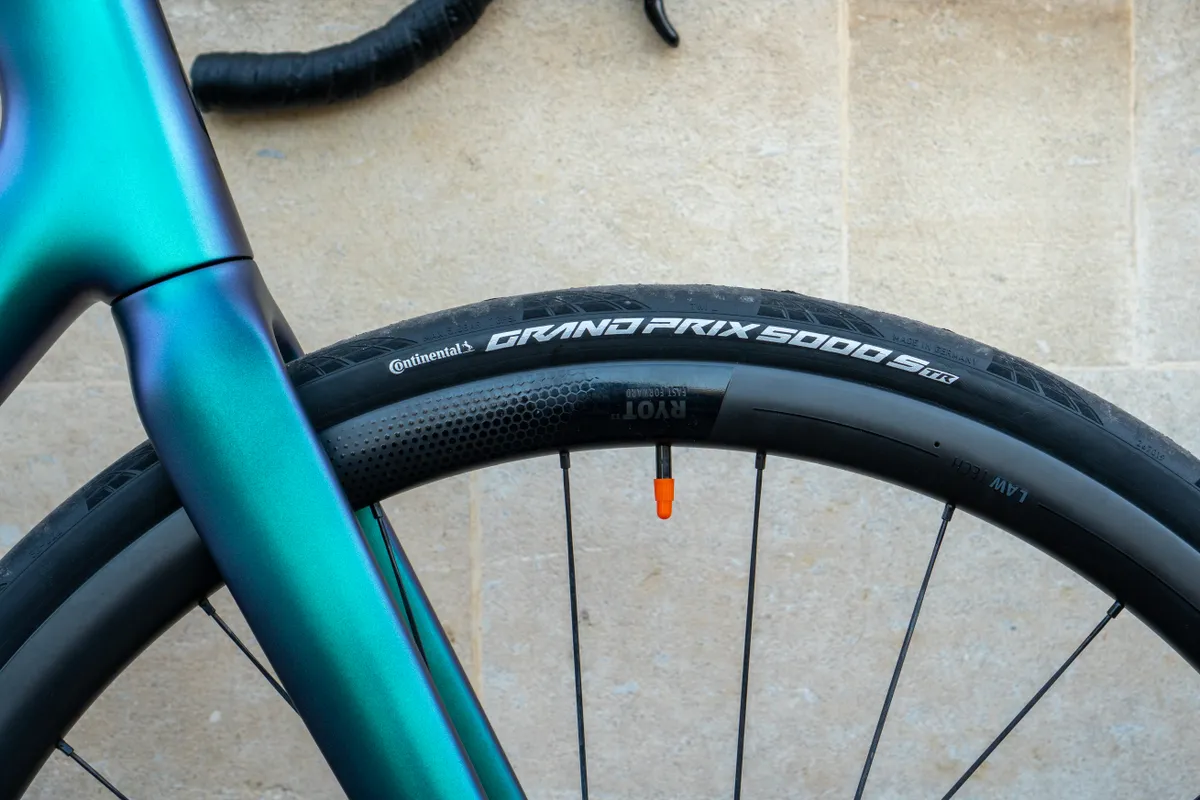
While aesthetics are subjective, there’s less to go wrong when just sticking with black tyres. Black complements everything and won’t show up the dirt as much either.
I might be making myself unpopular here, but put simply, tyres aren’t the place for colour customisation.
If you want to play around with the colours on your bike, buy a frame that does that in the first place – or, better still, for a more affordable way of adding flair to your riding setup, be bold with your kit – be it your helmet, shoes or clothes.
Likewise, if the tan colour is simply painted on, or worse, the changes to casings result in increased rolling resistance, is it really worth it?
